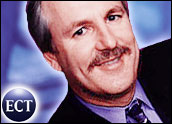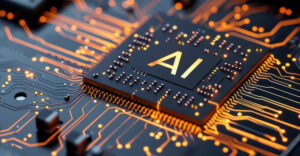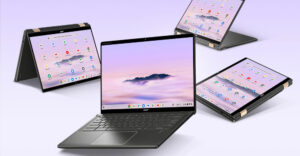
Last week I was in Japan doing a deep dive on Panasonic, a firm I’ve observed for decades but never really got to know until recently. I’ve studied Apple in depth since the ’80s and I find the contrasts between the firms and their key founders Konosuke Matsushita — for whom Panasonic was originally named — and Steve Jobs fascinating.
This trip happened shortly after the death of Tim Russert, who received the kind of national adulation typically reserved for a beloved politician, causing me to rethink the definition of success. He clearly had touched an incredible number of lives and — from my world view — I think he is vastly more successful in what should count than the clearly more financially successful Donald Trump. I’m not foolish enough to disparage “The Donald,” only pointing to the fact that I think few would have considered Tim in the same class, let alone actually thought him more successful, before he died.
In how the world perceives companies, I would think most would conclude Apple was the more successful when compared to Panasonic as well. But, in how I think we should measure companies but generally don’t, I now wonder if we should rethink this.
Let’s talk about what should be important — and often isn’t — this week by comparing Panasonic and Apple in a post-Tim Russert world.
We’ll conclude with my product of the week: an amazing new monitor which will make incredible movies like “Harry Potter,” “Iron Man” and even “Shrek” even more amazing.
Apple vs. Panasonic: The Application of Religion
Both Apple and Panasonic’s founders use religious experiences to drive their success but apply them very differently. Steve Jobs, when he was traveling in India, learned how a powerful religious leader could control and manipulate their flock for gain and applies this learning in brilliant marketing, basically remolding customers to better fit the product vision he has.
Konosuke Matsushita, the now-deceased founder of Matsushita — the company we know as Panasonic — was fascinated by monks early on in his career and the loyalty they had to their peers and organization. He built a company where the employees are more like close family than many families actually are.
As a result, Apple is known for getting people so excited about products they otherwise probably wouldn’t have purchased that they line up for days, while Panasonic is known here in Japan for creating employee loyalty that lasts generations and products that last for decades in service.
In short, one executive focused his learning on building a place where people were more like family, while the other focused on molding the views of his costumers to more closely align with his own. While both were personally successful, with concerns increasing about Apple’s post-Jobs survival, the fact that Matsushita’s 250-year plan for Panasonic remains intact long after his death is an interesting study in contrast.
The Use of Fear as a Motivator
Fear is an incredible motivator, and here the two companies differ in its application. Steve Jobs, in the book Inside Steve’s Brain, is portrayed as someone who rules by fear, where employees are underpaid and constantly reminded their jobs are at risk if they don’t meet their CEO’s sometimes-unreasonable expectations.
Apple is the only company I’ve ever covered where there is a term like “Steved,” which applies to a CEO who goes on firing rampages to apparently instill fear into and motivate his people. This drives the company to bring out amazing products with strong margins at an incredible pace, but it’s also a firm known for those who have departed the company, including a number of folks who are largely credited with making HP into the new IBM and others who apparently were used as scapegoats for executive mistakes.
The fear used inside of Panasonic is the fear of letting down co-workers, which may curtail certain risks and has recently resulted in one of the most environmentally friendly consumer lines of products that I have personally ever seen. While not as powerful as the fear of losing one’s job, this community focus has resulted in a company that appears better able to survive the departure of its founder and one that seems more focused on product reliability than quarterly revenues.
Contrasting Customer Views
Apple’s customer loyalty is legendary, but it comes from an apparent view that Steve is somehow superior to those customers who are given few “take it or leave it” choices, which many — and in the MP3 market, most — appear content with.
This is in sharp contrast to Panasonic, whose founder is widely published on his view that the customer must be always put in the superior position. In sharp contrast to Apple, Panasonic spends much of its efforts trying to find out what customers know they want, resulting in relatively large lines of very different products.
This makes it vastly more difficult for Panasonic to build visionary products because they have to rely on what customers know they want, while Apple blazes trails and pulls customers in behind them. It was with some irony that I recalled that the first really cool cell phone I ever owned was a Panasonic and that it was one of the thinnest phones of its time — but it wasn’t very successful.
You see this contrast in spades when you compare Panasonic’s laptop computers to Apple’s. Panasonic Toughbook products are nearly indestructible, while Apple’s focus is on building simple lines of products that are pleasing to the eye. At Panasonic they take pride in the fact that they build their products from scratch and that one actually saved a soldier’s life; at Apple they take pride in the fact that their products catch your breath and are some of the most desirable in the market.
The Tim Russet vs. Donald Trump Epiphany
A lot of us would like to have the wealth and power that Donald Trump enjoys, and he actually has a program where he has made famous the term “You’re Fired.” But Tim Russert is remembered by his vast network of friends, his mentoring, and an extended family that deeply benefited by his existence.
Apple is one of the most admired companies in the world in terms of design influence, with products that are like art, but where the CEO appears to be the most important person. In contrast, Panasonic is known for turning employees into families and building products that not only last incredibly long periods of time but, in some cases, are actually designed to help save lives.
The point I’m trying to make is that often we focus too much on the shiny stuff and not the things that are really important. I realized in the course of few days that there were two people I should have spent more time studying — Tim Russert and Konosuke Matsushita — while they lived. I didn’t because I was too busy watching people who specialized in being more visible but had less substance in areas that should have been important to me. In the end, success is likely defined by people who have skills in all of these areas, but, for the good of the planet, I think we all should focus a little more on substance than sparkle.
Product of the Week: A Monitor That Manufactures Dreams
In the midst of the HP launch two weeks ago, there was a product that likely will have a huge impact on the wonderful movies I look forward to this time of year. Created with the help of DreamWorks, this product will be widely used to make images that have made the more imaginative special effects and animation-based movies more real and believable.
The HP DreamColor is not a product that most of you can afford or will even really want. It is the first flat-panel display created specifically for those who create digital dreams and will help the movie industry create even more amazing movies in the future. Clearly, over time, the technology this display represents will eventually migrate down into products we will want to purchase, opening up new opportunities for video gaming, artificial reality and telepresence.
Because I love movies and I particularly love the amazing films that cause me to imagine and dream, the DreamColor monitor, which will help create those dreams, is my product of the week.
Rob Enderle is a TechNewsWorld columnist and the principal analyst for the Enderle Group, a consultancy that focuses on personal technology products and trends.




















































Hi, Rob.
I understand and appreciate your broader points in this article about success being measured by the other things than popularity and renown, a la Trump and Russert. Contrasting Jobs and Matsushita is certainly reasonable, as their relationships and management styles with their employees were/are quite different. However, I think you have allowed your distaste for Apple and Steve Jobs in particular to taint your points so heavily that I can find little of value AM ong them.
For example, your conclusions about what Jobs and Matsushita learned from Eastern religions–that Jobs learned how a religious leader could manipulate his flock, while Matsushita learned how to treat employees like family–make for a great contrast, but I don’t think there is any evidence ANYWHERE that Jobs was influenced in this way. Your evidence, please?
Also, trotting out employee loyalty to contrast Jobs and Matsushita ignores the fact that loyalty to ones company has been an ingrained cultural norm in Japan for many decades–it has nothing to do with Matshshita’s management style.
Never having been an Apple employee, I have no idea bout how the rank and file feels about the possibility of being "Steved", but I suspect morale at Apple is very high. If Apple employees are as underpaid as you suggest, and are as abused by and fearful of Jobs as you imply, why would they stay? Yet, the most talented and creative engineers in Silicon Valley continue to work for Apple. I think loyalty to their company’s ideals, which are essentially Steve Jobs’ ideals, plays a large role. Contrasting these ideals between Jobs and Matsushita would be far more interesting and enlightening than continuing to slip in hits and slights against a company and man you appear to irrationally hate. I have to wonder if Steve Jobs killed your dog, Rob. I mean, really!
Your next paragraph about contrasting customer views is very confused, and struggles to find ways to depict Apple negatively. My personal loyalty to Apple comes despite Steve Jobs, not because of him. My first three Apple purchases–a Performa 450, a 20th Anniversary Mac, and a Newton MessagePad–were all developed after Jobs had left Apple. I’m still bitter that he killed the Newton line. But I have to appreciate the products developed since, and I certainly feel my 5 year old PowerBook is the best computer I’ve ever owned, and AM ready to buy an AirBook in the near future. Why? It has nothing to do with Steve Jobs and everything to do with the quality and user experience I consistently encounter and expect as a matter of course with Apple products. If another company can achieve and surpass that, then I have no hesitation about trying their products. Apple’s success comes because most Apple fans have had similar experiences, not because we are unthinking followers of the Cult of Steve.
I hope you can shake off your dislike of whatever is irking you about Steve Jobs and Apple enough to write intelligently and honestly about them in the future. I liked the premise of this article a great deal. It’s really a shame that the legitimate contrasts that are there between Apple/Panasonic and Jobs/Matsushita couldn’t have been outlined more fairly and thoroughly. Perhaps a followup article could delve more deeply, but if you are unable to separate out your biases, Rob, then pass this task on to another writer, please.
Sincerely,
Dan